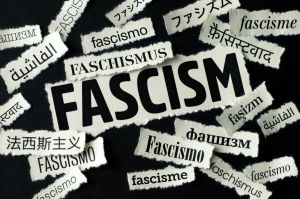What should employers do about political speech in workplace?

Tempers flare at Harvard and online as Americans discuss — and fail to do so with civility — the conflict in Gaza. Rather than following a speaker-listener model, or even a “friends and neighbors” mode of communication, allegations of antisemitism or even genocidal aspirations fly. Even Selena Gomez’s neutral post on the topic has garnered hatred from all sides. In short, deserved or not, “assume the best of the person you are speaking with” has flown out the window.
The national dialogue surrounding Gaza and Israel is sure to find its way into the American workplace. What should employers do?
There are a few things to be aware of. First, political speech is free speech, so it’s protected — but it’s not protected from everyone. While the government can’t restrict free speech, other people such as employers in their workplaces can. Though before running out and making lists of proscribed workplace topics, the canny supervisor will consider that every legal framework has limitations.
Be aware that some states and jurisdictions have laws that prevent employers from restricting certain political activities. For example, most people know that US employers can’t retaliate against their employees for engaging in things like reporting harassment. Less commonly known outside of the West Coast is that the California Labor Code expands similar protection to engaging in political activity such as assembling for a protest — and many states have similar laws.
Also, many forms of political speech involve protected characteristics. For example, consider the Israel-Gaza conflict: speech around that topic could involve national origin, religion, culture, and race/ethnicity. This means that Gaza-Israel-related workplace speech could trigger discrimination complaints, such as in the case of a Harvard professor allegedly discriminating against his students. However, restricting conversations around a topic could just as easily result in discrimination claims as allowing a conversational free-for-all.
For example, let’s change gears for a minute and look back to January 6, 2021. Following the January 6 protests, a Jewish Github employee told his coworkers to “Stay safe homies, there are Nazis about.” And while it’s true that “Nazi” or “Communist” was a very common accusation in 2021, in this case, there was literally a man walking around with a Camp Auschwitz shirt. Regardless of the validity of his warning, the Jewish employee was fired. It later came out that many employees used the word “Nazi” and “Communist” in the workplace, but only the Jewish employee was fired for it. 200 coworker signatures and a brief investigation later, he was offered his job back — the HR Director resigned — and Github issued a public apology. So, censoring workplace speech can just as easily run amok as allowing the aforementioned “free-for-all.”
This brings up an important concept: fairness. Allowing only some people to discuss politics while censoring others may or may not be illegal on its face, depending on the jurisdiction. And partisan censorship exposes employers to incredible risks. First, employers could easily find themselves in a situation where they’ve overtly discriminated against a minority — as was the case with Github. Second, because so much political speech trends along religious, national, or cultural lines, the organization could easily find itself in a situation where one group — for example, Christians face a hostile work environment where others are free to criticize their religion, but they are not free to defend it. Of course, the criticism would have to be pretty severe and pervasive to meet that legal standard, but these things happen more often than you’d expect.
Employers should be aware that speech advocating violence or promoting violence is generally going to be illegal, or at least is speech that can properly be banned in the workplace. This also goes for hateful or defamatory speech.
Lastly, employers must consider the possibility of disparate impact. Disparate impact is simple in concept, but complex in application. Simply put, if a law or rule has an outsized impact on one protected class over another, then it could be discriminatory. The most obvious example of this is requiring all employees to work on Saturday. While that rule is fair, and it’s being applied equally, it has a disparate impact on several religious groups. Applying this concept to political speech, if an employer banned all national symbols, their Jewish employees may find themselves unable to display the Star of David while their Catholic employees might be in the clear to display a Crucifix. While this may or may not add up to a legal case for workplace discrimination, “consistently applying a rule” and “justly applying a rule” don’t add up to the same thing in this example.
If your takeaway from reading all of this is “there isn’t a one-size fits all solution that can be applied in every scenario” you’d be correct. But just because there isn’t a universal solution, doesn’t mean there aren’t some basic principles we can apply.
First and foremost, employers should state clear reasons for their policies in writing. When enforcing those policies, they should make sure they do so in a way that aligns with their stated objectives. This avoids situations where the employer breaks the spirit of the law to enforce the letter.
Employers need to make sure their policies are fair. Restricting Palestinian national flags while allowing Israeli national flags can cause serious problems. But going the other direction, restricting the Star of David — simply because it is on a flag — while not restricting the Shahada, an Islamic oath, could be equally unfair. Adjudicating this issue is complicated and will likely involve working directly with employees to meet their needs.
Speaking of employees, policies should not overly restrict their lives by regulating too many things or by applying too far outside the workplace. Employers do have the right to restrict free speech in their workplace, but that does not mean they have the right to restrict the free speech of employees anywhere they go. Having rules restrict too many activities both muddies the original rationale for the rules and makes them very difficult to enforce justly and consistently. Importantly, this doesn’t mean that workplace rules can never apply beyond the workplace. Inappropriate (i.e. violent, hateful, defamatory) speech outside the workplace, such as on social media, can create a hostile working environment which employers must respond to and prevent.
This tension between the need to prevent hostile work environments and allowing free speech can be difficult to manage. It’s important to be proactive. Employees should feel like they can express themselves in the workplace. Feeling censored and oppressed is not conducive to high levels of employee retention and morale. This is less a matter of policy and more a matter of company culture. If employees are not able to bond over or express shared political beliefs, the employer may need to be proactive about creating other opportunities for bonding and expression. Employers may also need to offer some kind of services of support to employees struggling with current events.
Finally, make sure policies are not overly punitive. Litigation is an expensive and draining strategy of last resort. Firing someone for an ambiguous tweet or a first-time offense creates a situation where they may feel they have nowhere else to turn except to lawsuits or social media. And it also creates a situation where policies are more likely to be enforced in a discriminatory way, where one person gets away with saying “Nazi” — because they did not get caught — while someone else gets fired. If the first step were a conversation, instead of termination, a discriminatory situation can often be avoided.
Dangerous political speech, such as doxing, death threats, or violence, is not to be tolerated. And discriminatory political speech, such as racial slurs surrounding the war in Gaza, can create hostile work environments. If employers want to foster peace in the workplace, they will need to go beyond simply regulating workplace political speech, and proactively build the kind of workplace where employees can safely assume the best of each other.
A founding member of Telios Teaches with over a decade of experience in curriculum management, David Sidebotham takes attorney-generated curriculum and translates it into online courses that are accessible to all learners, while still remaining informative to learners who may be subject matter experts themselves. Telios Teaches includes both sexual harassment and child protection training.




























